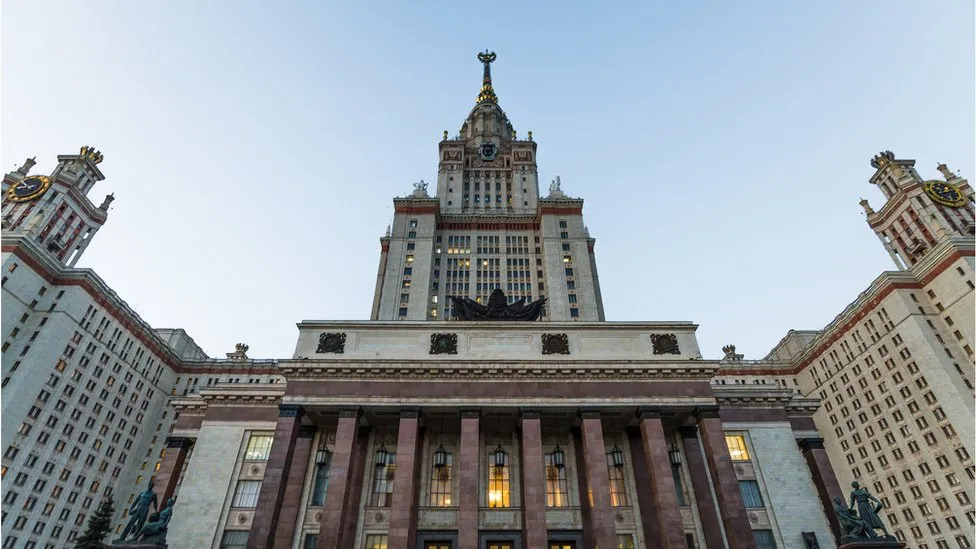Russian student jailed for pro-Ukraine wi-fi name
A student has been sentenced to 10 days in jail in Moscow after renaming his wi-fi network with a pro-Kyiv slogan.

The Moscow State University student had titled the network "Slava Ukraini!" which means "Glory to Ukraine!".
A Moscow court found him guilty of displaying "symbols of extremist organisations" on Thursday.
Since the start of Russia's war in Ukraine, thousands have been handed prison terms or fines for criticising the invasion or supporting Ukraine.
The student was arrested on Wednesday morning in Moscow, after a police officer had reported the network name to authorities.
According to court documents, officers inspected his room within the university's student accommodation, and found his personal computer and a wi-fi router.
The court said he had used the network to "promote the slogan 'Slava Ukraini!' to an unlimited number of users within wi-fi range." The router has now been confiscated.
"Slava Ukraini" has become a rallying cry for supporters of Ukraine, and is regularly heard chanted during protests against Russia's full-scale invasion, which it launched on 24 February, 2022.
The student was found guilty of "public demonstration of Nazi symbolism... or symbols of extremist organisations". Russian President Vladimir Putin has repeatedly made baseless claims about a "neo-Nazi regime" in Ukraine, and used it to justify his invasion.
The student is the latest in a long list of ordinary Russians who have been punished for their comments - or actions - about the war. Last month, hundreds of people were detained for simply laying flowers in memory of opposition leader Alexei Navalny, who died under suspicious circumstances in an Arctic Circle prison.
The conflict is not even allowed to be called a "war" in Russia - it must be referred to as a "special military operation".
According to Amnesty International, last year more than 21,000 people were targeted by Russia's "repressive laws" used to "crack down on anti-war activists".
The human rights group said "deeply unfair trials" were used to "dish out prison sentences and hefty fines to silence critics in response to the slightest dissent."
-bbc







